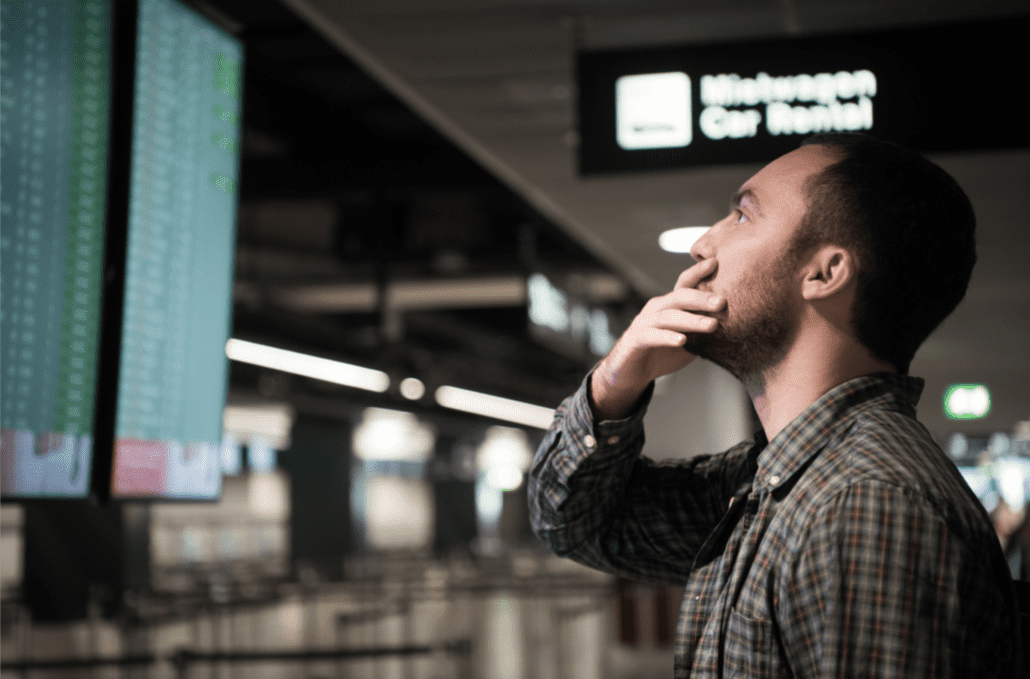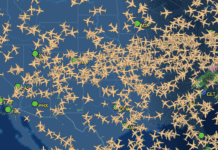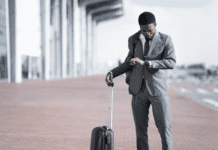
Flight delays and cancellations are starting to seem like another piece of our new, post-pandemic normal — and not a happy one for attendees.
It’s summertime and, while the living may be easy, flying is not. According to flight-tracking website FlightAware, this past weekend’s flight delays and cancellations are not easing as we move into the work week. After 950 flights were cancelled Sunday, another 200 got the kibosh on Monday. And the story is even worse when it comes to flight delays, with almost 8,000 delays reported on Sunday, followed by another 760 flight delays on Monday. Since June, almost 26,000 flights — 2.2% of all flights on U.S. airlines — have been canceled, and another 260,000, or 22%, have been delayed, according to FlightAware data.
And so the summer of airline discontent continues with more flight delays and cancellations. While they may be unavoidable due to over-filled flights, airline staffing shortages and, of course, fickle summer weather, the situation is more than just an inconvenience — it’s a growing problem for those who need to fly to attend, speak at, or even run the on-site operations for a meeting or business event.
As one person who was scheduled to work on site at an event in Florida recently but couldn’t get there because her JetBlue flight was delayed more than 24 hours said, “This is getting ridiculous. As if the lingering corporate travel restrictions and COVID concerns weren’t bad enough — now even if people are otherwise able and willing to attend, they may not be able to get there.”
The flight delay and cancellation issues so far have been the worst overall in Europe, where seven airports were among the worst offenders this summer for flight disruptions, but Toronto’s Pearson Airport tops the delay list — more than half of fliers trying to land there have experienced delays this summer. In fact, the situation is so tough that Air Canada is letting passengers change their itineraries to bypass Pearson for free due to “longer than usual delays.”
For cancellations, the U.S. and China are neck and neck in the race to the bottom. So if you have an event in China, or attendees coming from there, know they may have problems if they are flying out of airports in Shenzhen, Guangzhou or Chongqing, all of which made the list of 10 worst airports globally for cancelling flights. In the U.S., the top cancellation offenders are in the New York City region: Newark Liberty International Airport and LaGuardia Airport each are seeing about a 7% cancellation rate — more for domestic than international flights. While it’s further down the list, Ronald Reagan Washington National Airport also has a fairly dismal 6% cancellation rate.
The news for the U.S. airports when it comes to delays is better, with just Orlando International Airport making the list for global airports with the largest percentage of flight delays. While Orlando’s 34.4% delay rate is not great news, at least it’s better than the more than 52% travelers passing through Toronto’s Pearson International Airport are seeing, or the 45.4% travelers at Germany’s Frankfurt Airport are experiencing.
Much of the blame for flight delays and cancellations being placed squarely on the airlines, which misjudged their ability to meet the surge in demand for summer travel — though there’s plenty to go around to air traffic control and Mother Nature. However, when it comes to seeing an end in sight for the situation, it’s hard to anticipate when capacity and staffing will catch up to demand. Airlines continue to try to staff up, with airlines such as Southwest saying their cancellation rates have dropped below what they were two and three years ago with this year’s addition of 10,000 employees. But staffing up, and then training those staff, takes time.
In the meantime, legislators are getting involved. Senators Bernie Sanders (I-Vt.) and Edward Markey (D-Mass.) have written to airline execs with both insults and urgent pleas to get the delay and cancelation situation under control. Markey, Richard Blumenthal (D-Conn.), Elizabeth Warren (D-Mass.), and Sheldon Whitehouse (D-R.I.), along with Representatives Steve Cohen (TN-09), Jesús G. “Chuy” García (IL-04) and Jamie Raskin (MD-08) also recently introduced the Cash Refunds for Flight Cancellations Act, which would provide consumers an enforceable right to a full cash refund for flight and ticket cancellations.
U.S. Transportation Secretary Pete Buttigieg also has held virtual meetings with airline execs to try to find solutions to the ongoing problem. Ironically, his flight from D.C. to New York just days later got canceled.
“I thought, this is pretty on the nose,” Buttigieg told NPR. “It illustrates what millions of passengers are concerned about right now.”
You May Also Be Interested In…
10 Worst U.S. Airports for Flight Cancellations and Delays
Packing Tips from Prevue Insiders
Business Travelers Can’t Wait to Travel Again










